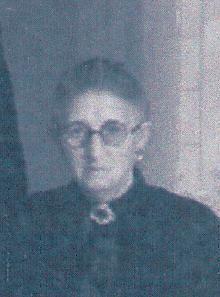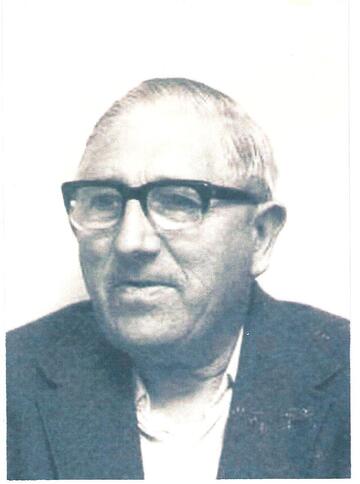Family tree Jacobs » Jan Bijlsma (1881-1962)
Personal data Jan Bijlsma
- He was born on November 4, 1881 in Emmer-Compascuum.
- Profession: Arbeider, winkelier in vis en fruit, veenarbeider.
- Religion: NH.
- He died on May 7, 1962 in Emmen, he was 80 years old.
- A child of Yntse Jans Bijlsma and Geertje Vriezema
- This information was last updated on January 28, 2016.
Household of Jan Bijlsma
He is married to Hendrikje Boelen.
They got married on May 2, 1907 at Emmen, he was 25 years old.
Child(ren):
- Geertje Bijlsma 1909-
- Geert Bijlsma 1911-
- Gesina Roelfien Bijlsma 1918-
Timeline Jan Bijlsma
This functionality is only available in Javascript supporting browsers.
Click on the names for more info.
Symbols used:  grandparents
grandparents
 parents
parents
 brothers/sisters
brothers/sisters
 children
children
 grandparents
grandparents
 parents
parents
 brothers/sisters
brothers/sisters
 children
children
Ancestors (and descendant) of Jan Bijlsma
Jan Bijlsma | |||||||||||||||||||||||||||||||||||||
1907 | |||||||||||||||||||||||||||||||||||||
Hendrikje Boelen | |||||||||||||||||||||||||||||||||||||
The data shown has no sources.
Matches in other publications
This person also appears in the publication:Historical events
Birthday November 4, 1881
- The temperature on November 4, 1881 was about 12.3 °C. There was 1 mm of rain. The air pressure was 3 kgf/m2 and came mainly from the south. The airpressure was 76 cm mercury. The atmospheric humidity was 100%. Source: KNMI
- Koning Willem III (Huis van Oranje-Nassau) was from 1849 till 1890 sovereign of the Netherlands (also known as Koninkrijk der Nederlanden)
- In The Netherlands , there was from August 20, 1879 to April 23, 1883 the cabinet Van Lijnden van Sandenburg, with Mr. C.Th. baron Van Lijnden van Sandenburg (conservatief-AR) as prime minister.
- In the year 1881: Source: Wikipedia
- The Netherlands had about 4.5 million citizens.
- January 25 » Thomas Edison and Alexander Graham Bell form the Oriental Telephone Company.
- February 27 » First Boer War: The Battle of Majuba Hill takes place.
- June 28 » The Austro–Serbian Alliance of 1881 is secretly signed.
- July 1 » The world's first international telephone call is made between St. Stephen, New Brunswick, Canada, and Calais, Maine, United States.
- September 19 » U.S. President James A. Garfield dies of wounds suffered in a July 2 shooting. Vice President Chester A. Arthur becomes President upon Garfield's death.
- September 20 » U.S. President Chester A. Arthur is sworn in, the morning after becoming President upon James A. Garfield's death.
Day of marriage May 2, 1907
- The temperature on May 2, 1907 was between 4.2 °C and 9.3 °C and averaged 6.3 °C. There was 3.8 mm of rain. There was 0.2 hours of sunshine (1%). The average windspeed was 5 Bft (very strong wind) and was prevailing from the southwest. Source: KNMI
- Koningin Wilhelmina (Huis van Oranje-Nassau) was from 1890 till 1948 sovereign of the Netherlands (also known as Koninkrijk der Nederlanden)
- In The Netherlands , there was from August 17, 1905 to February 11, 1908 the cabinet De Meester, with Mr. Th. de Meester (unie-liberaal) as prime minister.
- In the year 1907: Source: Wikipedia
- The Netherlands had about 5.6 million citizens.
- April 17 » The Ellis Island immigration center processes 11,747 people, more than on any other day.
- June 22 » The London Underground's Charing Cross, Euston and Hampstead Railway opens.
- July 7 » Florenz Ziegfeld Jr. staged his first Follies on the roof of the New York Theater in New York City.
- August 29 » The Quebec Bridge collapses during construction, killing 75 workers.
- August 31 » Russia and the United Kingdom sign the Anglo-Russian Convention, by which the UK recognizes Russian preeminence in northern Persia, while Russia recognizes British preeminence in southeastern Persia and Afghanistan. Both powers pledge not to interfere in Tibet.
- December 10 » The worst night of the Brown Dog riots in London, when 1,000 medical students clash with 400 police officers over the existence of a memorial for animals that have been vivisected.
Day of death May 7, 1962
- The temperature on May 7, 1962 was between 9.4 °C and 17.0 °C and averaged 14.3 °C. There was 0.1 mm of rain during 0.1 hours. There was 1.7 hours of sunshine (11%). The heavily clouded was. The average windspeed was 3 Bft (moderate breeze) and was prevailing from the west-southwest. Source: KNMI
- Koningin Juliana (Huis van Oranje-Nassau) was from September 4, 1948 till April 30, 1980 sovereign of the Netherlands (also known as Koninkrijk der Nederlanden)
- In The Netherlands , there was from May 19, 1959 to July 24, 1964 the cabinet De Quay, with Prof. dr. J.E. de Quay (KVP) as prime minister.
- In the year 1962: Source: Wikipedia
- The Netherlands had about 11.7 million citizens.
- January 1 » Western Samoa achieves independence from New Zealand; its name is changed to the Independent State of Western Samoa.
- January 10 » Apollo program: NASA announces plans to build the C-5 rocket launch vehicle, which became known as the Saturn V Moon rocket, which launched every Apollo Moon mission.
- April 26 » NASA's Ranger 4 spacecraft crashes into the Moon.
- August 16 » Pete Best is discharged from The Beatles, to be replaced two days later by Ringo Starr.
- September 8 » Last run of the famous Pines Express over the Somerset and Dorset Railway line (UK) fittingly using the last steam locomotive built by British Railways, BR Standard Class 9F 92220 Evening Star.
- October 14 » The Cuban Missile Crisis begins when an American reconnaissance aircraft takes photographs of Soviet ballistic missiles being installed in Cuba.
Same birth/death day
- 1873 » Kyōka Izumi, Japanese author, poet, and playwright († 1939)
- 1874 » Charles Despiau, French sculptor († 1946)
- 1879 » Will Rogers, American actor and screenwriter († 1935)
- 1883 » Nikolaos Plastiras, Greek general and politician 135th Prime Minister of Greece († 1953)
- 1884 » Harry Ferguson, Irish engineer, invented the tractor († 1960)
- 1887 » Alfred Lee Loomis, American physicist and philanthropist († 1975)
- 1946 » Herbert Macaulay, Nigerian journalist and politician (b. 1864)
- 1951 » Warner Baxter, American actor (b. 1889)
- 1958 » Mihkel Lüdig, Estonian organist, composer, and conductor (b. 1880)
- 1967 » Margaret Larkin, American writer and poet (b. 1899)
- 1976 » Alison Uttley, English children's book writer (b. 1884)
- 1978 » Mort Weisinger, American journalist and author (b. 1915)
About the surname Bijlsma
- View the information that Genealogie Online has about the surname Bijlsma.
- Check the information Open Archives has about Bijlsma.
- Check the Wie (onder)zoekt wie? register to see who is (re)searching Bijlsma.
The Family tree Jacobs publication was prepared by Michael Jacobs.
When copying data from this family tree, please include a reference to the origin:
Michael Jacobs, "Family tree Jacobs", database, Genealogy Online (https://www.genealogieonline.nl/stamboom-michael-jacobs/I4639.php : accessed April 30, 2025), "Jan Bijlsma (1881-1962)".
Michael Jacobs, "Family tree Jacobs", database, Genealogy Online (https://www.genealogieonline.nl/stamboom-michael-jacobs/I4639.php : accessed April 30, 2025), "Jan Bijlsma (1881-1962)".

